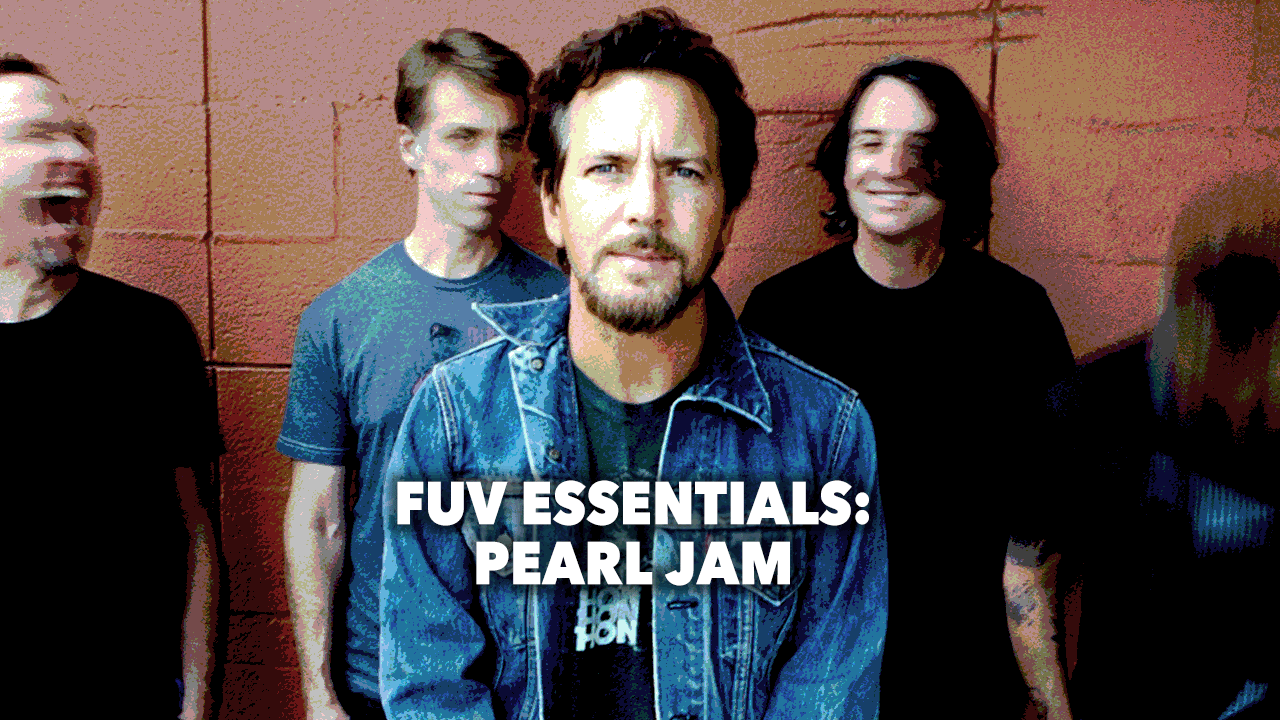Pearl Jam

Pearl Jam (Original photo by Danny Clinch / PR)
When a very hirsute David Letterman inducted Pearl Jam into the Rock and Roll Hall of Fame in April 2017, his affectionate, funny speech made special note not only of the Seattle-bred band's legacy, but its committments beyond the boundaries of music. He called them "more than a band."
"They're true living cultural organisms," said Letterman. "They would recognize injustice and they would stand up for it. Whether it was human rights or the environment. Whether it was poverty. They didn't let it wash over them. They would stand up and react."
They're also survivors. Pearl Jam emerged from the flannel tidal wave of grunge that swept from the Pacific Northwest to the world, but it was a scene plagued by the horrors of heroin addiction and the far-too-early deaths over the years of Nirvana's Kurt Cobain, Alice in Chains' Layne Staley and Mike Starr, Hole's Kristen Pfaff, 7 Year Bitch's Stefanie Sargent, Stone Temple Pilots' Scott Weiland, and on May 17, 2017, Soundgarden and Temple of the Dog's Chris Cornell. Perversely, Pearl Jam was even born from that misfortune: the overdose death of Mother Love Bone's Andrew Wood in 1990 prompted bassist Jeff Ament and guitarist Stone Gossard to form the band, auditioning and then hiring the Herculean vocalist Eddie Vedder and recruiting lead guitarist Mike McCready. Drumming duties shifted between Dave Krusen, Dave Abbruzzese, Jack Irons, and Matt Chamberlain before Matt Cameron, ex of Soundgarden, finally broke the Spinal Tap-like spell and became Pearl Jam's official member and drummer in 1998.
From the volcanic launch of Ten in 1991, Pearl Jam's sound—epic, earnest, bruised, and brushed with darkness —was destined to outlive the meteoric impact of grunge, despite band squabbles and cursed tours, like the Ticketmaster debacle that torpedoed the Vitalogy road trip in 1995. Seventeen years ago, the band came close to breaking up following a devastating tragedy: nine fans died during Pearl Jam's set at the Denmark's Roskilde Festival, crushed as the massive crowd surged towards the stage, trampling those up front. It altered the band forever; to this day, Gossard is still in touch with the families of some of the victims and Pearl Jam remains vigilant about concert security, venue barricades, entrances and exits, and the safety of their fans. The song "Love Boat Captain," from 2002's Riot Act, reflected on that grief:
It's an art to live with pain, mix the light into grey,
Lost nine friends we'll never know, two years ago today
And if our lives became too long, would it add to our regret?
Musically, Pearl Jam has always been tough to pin down too: not just grunge, not metal or punk, not typical classic rock, and not slick pop, but not eschewing any of those avenues either. Explosive early singles like the haunting "Jeremy" or "Alive" demanded arena-sized crowds and Pearl Jam's quick ascent to that kind of success assured them of a longevity that a lot of their grunge brethren never had. Vedder, Gossard, Ament, McCready and (eventually) Cameron hewed to a more traditional rock path—one followed by their influences, like Neil Young, Roger Waters or Led Zeppelin. Although sometimes accused of being a little too serious, they cheerfully poked fun at themselves as Matt Dillon's beleaguered bandmates of Citizen Dick, the fictional rockers in Cameron Crowe's 1992 Seattle-centric feature "Singles," which marks its 25th anniversary on May 19. (Crowe would also direct the 2011 documentary, "Pearl Jam Twenty.")
Of the ten (so far) studio albums released by Pearl Jam, the band's triad of early releases defined their legacy: their debut Ten; the raw and rowdy Vs. (which, along with its heavy-duty, minor key muscularity, harbored truly gorgeous tracks like "Daughter" and "Elderly Woman Behind the Counter in a Small Town"); and 1994's confident and masterful Vitalogy, with its anthemic "Better Man" or the gentle "Nothingman." The global beats and flourishes that shaped No Code's experimentalism ("Who You Are"), and the anthems and anguish of 1998's Yield ("Given to Fly") revealed a band in constant flux too, never quite sure where to land and restlessly exploring new angles.
Pearl Jam's 27th year finds them inducted into the Rock and Roll Hall of Fame, four years out from their last album, 2013's Lighting Bolt. In 2015, Vedder, Gossard, Ament, McCready and Cameron appeared on "The Late Show with Stephen Colbert" to discuss their involvement with the Global Citizen Festival, one of innumerable benefit concerts and causes that Pearl Jam has supported, using music, as Vedder explained, to enact "tangible change." As a band that has soldiered on despite grief, sadness and setbacks, Pearl Jam understands that empathy and altruism is the heart of real success; they are buoyed as much by their activism as they are by their artistry.
There are many reasons why Pearl Jam is one of our FUV Essentials, but their beneficence is as inspiring as their rock 'n' roll legacy.
More:
FUV Essentials: Greg Graffin on Pearl Jam

